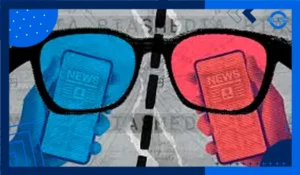نمونه سوالات اسپیکینگ آیلتس درباره فناوری (پاسخ نمره 9)
IELTS Speaking Questions with Band 9 Answers about Technology
در این بخش بیش از 20 نمونه سوال اسپیکینگ آیلتس نمره 9 از آخرین سوالات گزارش شده از سنترهای ایرانی و خارجی برگزار کننده آیلتس مربوط به پارت 1، 2 و 3 درباره موضوع “فناوری” را برای شما فهرست کرده ایم. در ادامه همچنین نکات گرامری، لغات و دلایل دریافت نمره 9 را توضیح داده ایم. 1000 نمونه سوالات اسپیکینگ آیلتس با جواب PDF پارت 1 2 3 پیشنهاد بعدی ما به شما عزیزان است.
نمونه سوالات اسپیکینگ آیلتس درباره موضوع فناوری (پارت 1)
IELTS Speaking Part 1 Questions and Band 9 Answers (Topic: Technology)
1. What technology do you use every day?
I use my smartphone, laptop, and smartwatch daily. My smartphone keeps me connected through calls, messages, and apps, while my laptop is essential for work and study. The smartwatch monitors my fitness and notifies me of important updates. These devices streamline my routine, allowing me to multitask efficiently. For instance, I can manage emails on the go or track my physical activity seamlessly. Such technology not only enhances productivity but also provides entertainment and convenience, making it an integral part of my life.
2. Do you think technology has improved our lives?
Absolutely, technology has significantly enhanced our lives by simplifying complex tasks and fostering global connectivity. For example, smartphones and video conferencing tools enable real-time communication across vast distances. Additionally, advancements in healthcare technology have improved diagnostics and treatment, saving countless lives. Online platforms have democratized education, making high-quality resources accessible to everyone. However, it’s crucial to balance technology use to avoid potential downsides like over-reliance or reduced interpersonal interaction. When used responsibly, technology undeniably improves our quality of life.
3. What is your favorite piece of technology?
My favorite piece of technology is my smartphone because of its versatility. It combines multiple functions, from communication and navigation to photography and entertainment, into one compact device. I particularly enjoy its ability to provide instant access to information and connect me with people worldwide. Its convenience has transformed how I organize my life and complete daily tasks. While I try to minimize unnecessary screen time, the smartphone remains a tool I rely on heavily for both personal and professional purposes.
4. Do you prefer using a laptop or a smartphone?
It depends on the context. I prefer using my laptop for tasks requiring extensive typing or multitasking, such as writing reports or attending virtual meetings. On the other hand, my smartphone is ideal for on-the-go activities, like checking emails or staying connected through social media. Both devices complement each other, fulfilling distinct roles in my daily routine. While laptops excel in performance and efficiency, smartphones offer unmatched portability and convenience, making them both indispensable in modern life.
5. How has technology affected the way we shop?
Technology has revolutionized shopping by introducing online platforms that offer convenience and variety. With just a few clicks, consumers can compare prices, read reviews, and purchase items from anywhere. Mobile apps and digital payment systems have further streamlined the process. However, this shift has also impacted traditional retail stores, as many people now prefer the comfort of shopping from home. Despite potential challenges like cybersecurity concerns, technology has made shopping faster, more accessible, and increasingly tailored to individual preferences.
6. What is the most important technology in your opinion?
I believe the internet is the most important technology as it serves as the backbone of modern communication, education, and business. It connects billions of people worldwide, facilitating access to information and enabling online collaboration. From e-learning platforms to telemedicine services, the internet has revolutionized various aspects of life. Its importance cannot be overstated, as it continues to drive innovation and bridge gaps in society. However, responsible use and cybersecurity measures are vital to maximizing its benefits while mitigating risks.
7. Do you think people rely too much on technology?
Yes, to some extent, people rely heavily on technology for daily activities. Tasks like navigation, communication, and even remembering appointments are often delegated to digital devices. While this dependency enhances efficiency, it may also lead to reduced problem-solving skills and over-reliance on automated systems. Striking a balance is essential to reap the benefits of technology without compromising fundamental abilities. Responsible usage and occasional disconnection can help maintain a healthy relationship with technology.
8. How has technology impacted education?
Technology has transformed education by making learning more accessible and engaging. Online platforms offer diverse resources, enabling students to study at their own pace. Interactive tools like virtual classrooms and educational apps promote collaborative and immersive learning experiences. Additionally, AI-powered analytics personalize education by identifying students’ strengths and weaknesses. While traditional teaching methods still hold value, integrating technology into education has made knowledge more attainable and adaptable to individual needs, fostering a more inclusive learning environment.
9. What are the disadvantages of technology?
While technology offers numerous benefits, it has some drawbacks. Over-reliance can lead to reduced interpersonal skills and physical activity, as people often prefer virtual interactions. Privacy concerns are another issue, as personal data is vulnerable to breaches. Moreover, prolonged screen time can negatively affect mental and physical health. Striking a balance by setting boundaries and using technology responsibly can mitigate these disadvantages, ensuring its benefits outweigh its drawbacks.
10. What technological innovation do you hope to see in the future?
I hope to see advancements in renewable energy technologies that address environmental challenges. Innovations like efficient solar panels, wind turbines, and energy storage systems could significantly reduce our dependence on fossil fuels. Such developments would not only combat climate change but also provide sustainable energy solutions for future generations. Additionally, integrating smart technology into energy systems could optimize usage and reduce waste, paving the way for a cleaner, greener future.
نمونه سوالات اسپیکینگ آیلتس درباره موضوع فناوری (پارت 2)
IELTS Speaking Part 2 Question and Band 9 Answer (Topic: Technology)
Describe a piece of technology you find useful in your daily life.
You should say:
what it is
how you use it
how it has changed your life
and explain why you find it useful.
Answer:
A piece of technology I find incredibly useful is my smartphone. It’s a device that combines multiple functions into one compact gadget, making it an indispensable tool in my daily routine. I primarily use it for communication, such as sending messages, making calls, and participating in video conferences. Beyond that, it serves as my planner, allowing me to schedule tasks, set reminders, and organize my day effectively.
One of its most transformative aspects is access to the internet. With just a few taps, I can browse information, check emails, and even take online courses. Apps for navigation help me find the quickest routes, while fitness trackers monitor my physical activity, ensuring I stay healthy. Additionally, its high-quality camera lets me capture memorable moments effortlessly.
This device has revolutionized my life by enhancing convenience and productivity. Tasks that once required separate tools, like calendars, cameras, and even books, are now consolidated into one device. It has also enabled me to stay connected with friends and family worldwide, bridging physical distances.
What makes my smartphone particularly invaluable is its adaptability. New apps and updates consistently improve its functionality, ensuring it remains relevant to my needs. While I acknowledge its potential for distraction, I make a conscious effort to use it purposefully. Overall, it’s an innovative piece of technology that has significantly enriched my personal and professional life.

نمونه سوالات اسپیکینگ آیلتس درباره موضوع فناوری (پارت 3)
IELTS Speaking Part 3 Questions and Band 9 Answers (Topic: Technology)
1. How has technology changed the way we communicate?
Technology has revolutionized communication by making it faster, more accessible, and more versatile. Today, we rely on smartphones, social media platforms, and instant messaging apps to connect with people globally. Video conferencing tools like Zoom have bridged physical distances, enabling virtual face-to-face interactions. Unlike traditional methods like letters, modern technology offers real-time communication and multimedia integration, such as sharing videos and images. However, this shift has also reduced personal interactions and, at times, led to superficial connections. Despite these drawbacks, the convenience and efficiency provided by technological advancements have undeniably transformed how we interact with others.
2. Do you think technology has made people more productive?
Yes, technology has significantly enhanced productivity by streamlining tasks and automating repetitive processes. For instance, tools like project management software enable teams to collaborate efficiently, even across different time zones. Additionally, artificial intelligence applications assist in data analysis, saving time and improving accuracy. Cloud computing allows instant access to information, eliminating delays caused by physical storage limitations. However, distractions like social media and excessive screen time can negatively affect focus. Therefore, while technology boosts productivity, its benefits depend on how effectively it is utilized.
3. How do you think artificial intelligence will impact the job market?
Artificial intelligence is poised to transform the job market by automating routine tasks and creating new opportunities in tech-driven fields. While some jobs may become obsolete, AI will generate demand for roles requiring advanced skills, such as data science, AI development, and robotics engineering. Moreover, industries like healthcare and education will benefit from AI-powered tools that improve efficiency and personalization. However, this shift may widen the skills gap, necessitating upskilling and reskilling programs. Ultimately, AI’s impact will depend on how society adapts to these changes and ensures inclusive growth.
4. Do you think technology is creating a gap between generations?
Yes, technology can create a generational gap, primarily due to differences in familiarity and adoption rates. Younger generations, who grow up with digital devices, often adapt quickly to new technologies, while older individuals may struggle to keep pace. This gap can lead to misunderstandings and differing communication preferences, such as texting versus calling. However, efforts like digital literacy programs for seniors are bridging this divide. Additionally, shared interests, like video calls to stay connected, demonstrate how technology can unite generations despite initial disparities.
5. How has technology impacted education?
Technology has transformed education by making learning more accessible and engaging. Online platforms like Coursera and Khan Academy provide high-quality resources to students worldwide, breaking geographical barriers. Interactive tools, such as virtual reality, enhance experiential learning, making complex subjects more comprehensible. Moreover, AI-driven analytics personalize education, identifying students’ strengths and weaknesses. However, over-reliance on technology may reduce face-to-face interaction and critical thinking. Balancing traditional methods with technological tools is key to maximizing educational benefits.
6. What are the negative effects of technology on society?
While technology offers numerous advantages, it also has adverse effects. Social media can foster cyberbullying and spread misinformation, impacting mental health and trust. Excessive screen time often leads to physical issues, such as eye strain and sedentary lifestyles. Additionally, the overuse of technology in personal interactions can weaken social bonds. Privacy concerns are another major drawback, as personal data is frequently at risk. Addressing these challenges requires promoting responsible usage and implementing robust regulatory measures.
7. How has technology changed the workplace?
Technology has revolutionized the workplace by enhancing efficiency, communication, and flexibility. Tools like video conferencing and collaboration platforms enable remote work, allowing employees to connect globally. Automation reduces manual effort, increasing output and accuracy. Additionally, data analytics supports informed decision-making. However, these advancements demand continuous learning to stay relevant. While technology improves productivity and work-life balance, it also raises concerns about job security, especially in roles susceptible to automation.
8. Is technology making people less creative?
The impact of technology on creativity is complex. On one hand, it offers tools like graphic design software and music composition apps, enabling people to express their ideas innovatively. On the other hand, over-reliance on algorithms and ready-made solutions may stifle original thought. Social media can also encourage imitation rather than innovation. Ultimately, creativity depends on how individuals use technology—either as a catalyst for inspiration or a crutch that limits imagination.
9. Should governments regulate the use of technology?
Governments should regulate technology to ensure ethical practices and protect public interests. For example, regulations can address issues like data privacy, cybersecurity, and misinformation. Stricter guidelines for AI development can prevent misuse and promote accountability. However, excessive regulation may stifle innovation and economic growth. A balanced approach, involving collaboration between governments, tech companies, and civil society, is crucial to maximize the benefits of technology while minimizing its risks.
10. What role does technology play in environmental sustainability?
Technology plays a pivotal role in promoting environmental sustainability. Innovations like renewable energy solutions, electric vehicles, and smart grids reduce carbon emissions. Advanced monitoring systems help track environmental changes and inform conservation strategies. Additionally, AI-driven models optimize resource management in industries like agriculture and manufacturing. However, the production and disposal of electronic devices contribute to pollution. To fully harness technology’s potential, sustainable practices, such as recycling and energy-efficient designs, must be prioritized.
Explanation for Band 9 Level
- Grammar:
- Use of complex sentence structures (e.g., conditional sentences, relative clauses).
- Variety of tenses, such as present perfect, future, and passive voice.
- Accurate use of modal verbs (e.g., “can,” “should,” “must”).
- Vocabulary:
- Advanced lexical resources (e.g., “automation,” “upskilling,” “inclusive growth”).
- Topic-specific terminology (e.g., “artificial intelligence,” “renewable energy”).
- Use of collocations and idiomatic expressions (e.g., “bridge the divide,” “catalyst for inspiration”).
- Coherence and Cohesion:
- Logical flow with clear transitions (e.g., “On one hand… On the other hand”).
- Effective use of discourse markers (e.g., “Moreover,” “However,” “Ultimately”).
- Pronunciation (if spoken):
- Clear enunciation of complex terms.
- Natural rhythm and intonation suitable for the topic.
These elements combine to showcase a high level of proficiency, meeting the criteria for Band 9
تعیین سطح رایگان اسپیکینگ ❤️
نمونه سوالات اسپیکینگ آیلتس درباره موضوع فناوری پارت 1 2 3 را به همراه سمپل های نمره 9 آن ها با هم دیدیم. در ادامه نمونه سوالات دسته بندی شده اسپیکینگ آیلتس پیشنهاد آخر ما به دوستان گرامی هست. این نمونه سوالات اسپکینگ از پرتکرار ترین تاپیک های این بخش و همچنین جدیدترین موضوعات می باشند. این مجموعه توسط یکی از سایت های معتبر و فعال آیلتس تنظیم شده است. همچنین برای تعیین سطح و تعیین رایگان نمره اسپیکینگ و دریافت جدید ترین سمپل های نمره 9 در کانال تلگرام اسپیکینگ ما همراه باشید و به ادمین برای تعیین نمره اطلاع دهید.






